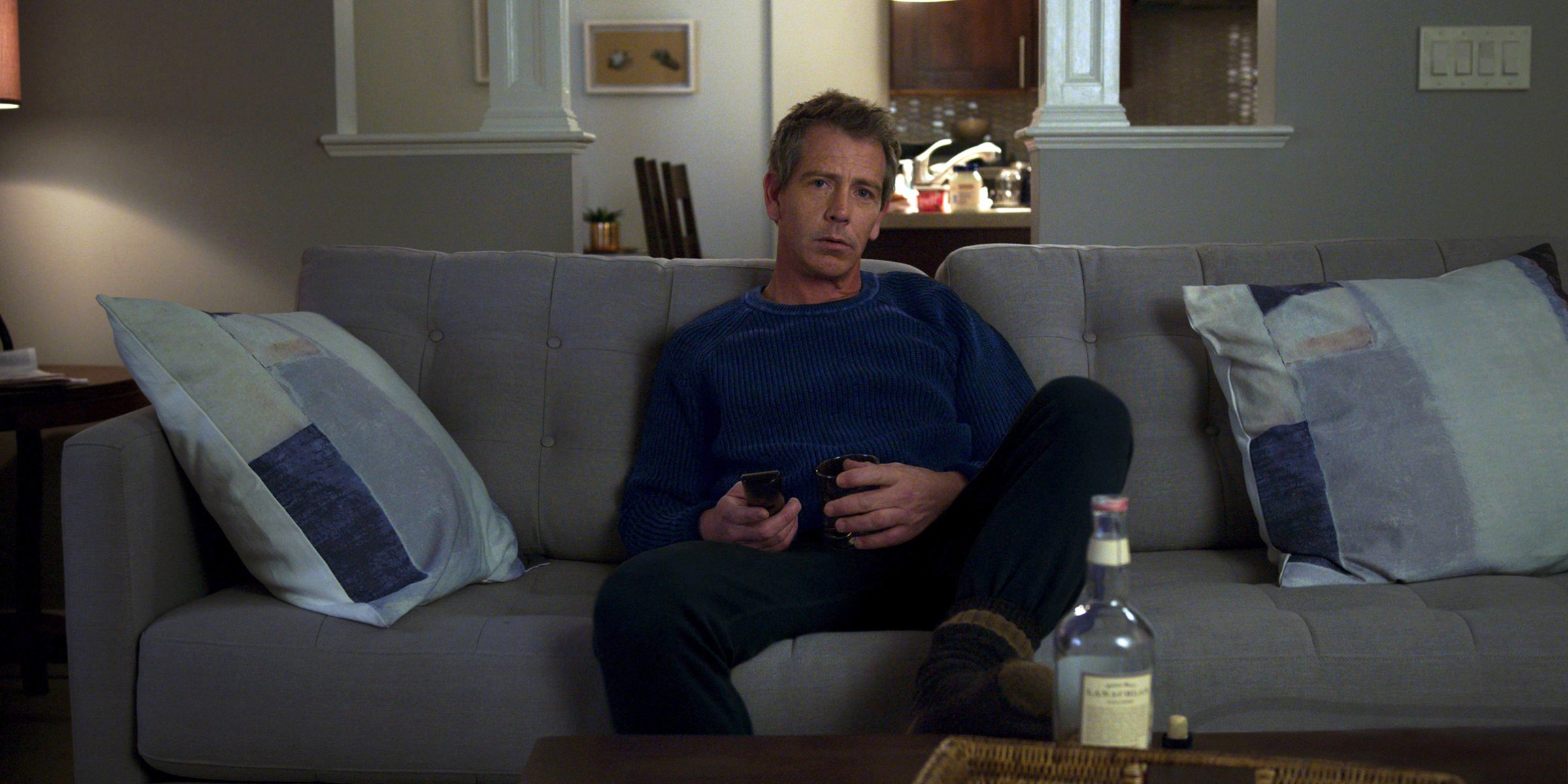
Even if you don’t buy the auteur theory, you could easily gather all of writer-director Nicole Holofcener’s films–like the prickly-funny 2001 Lovely & Amazing or the 2013 grownup romance Enough Said–beneath one unifying, if not constricting, umbrella. Her movies are always about people who have become unglued, who find that when they try to pull things together, the jagged parts can’t be reassembled as they were before.
That’s certainly true of Holofcener’s latest, produced by Netflix, The Land of Steady Habits. Ben Mendelsohn plays the recently divorced Anders, who can’t quite move on from life with his ex (Edie Falco) and bemoans the aimlessness of his 27-year-old son (Thomas Mann). There’s the possibility of romance with Barbara (Connie Britton), whom he meets in a strip-club bathroom, of all places. But mostly, he dislikes everyone and everything, and he’s so acidic that no one likes him much either. He’s further shunned when the son of family friends (Charlie Tahan) offers him a toke of some seemingly harmless substance at a party, igniting a chain of events that prove tragic.
Holofcener reassures us that it’s O.K. to laugh at human foibles–we have to, since so much of life is ridiculous and awful–but we’d better not consider ourselves exempt from them. Her dialogue always feels believably natural, like scraps from everyday life, and sometimes it cuts deep. When Anders and Barbara first go to bed, he can’t quite perform, and she’s as kind as possible in the awkward aftermath. Then he notes the title of a book on her bedside table, Live Your Best Life Today, and asks derisively why women are always reading stuff like this. After a pause that suggests she can hardly believe what she’s hearing, Barbara strikes back–“Are you in my bed, making fun of my book?”–but the words that cap her outburst are what matter most: “You’re mean.”
We all make mistakes, and we all have the ability to wound when we’re just trying to be clever: Holofcener makes allowances for all of that. But she always favors warmth over sarcasm. And as if she could read our minds, she puts in her characters’ mouths words that we ourselves have sometimes failed to find the guts to say.
More Must-Reads From TIME
- The 100 Most Influential People of 2024
- The Revolution of Yulia Navalnaya
- 6 Compliments That Land Every Time
- What's the Deal With the Bitcoin Halving?
- If You're Dating Right Now , You're Brave: Column
- The AI That Could Heal a Divided Internet
- Fallout Is a Brilliant Model for the Future of Video Game Adaptations
- Want Weekly Recs on What to Watch, Read, and More? Sign Up for Worth Your Time
Contact us at letters@time.com